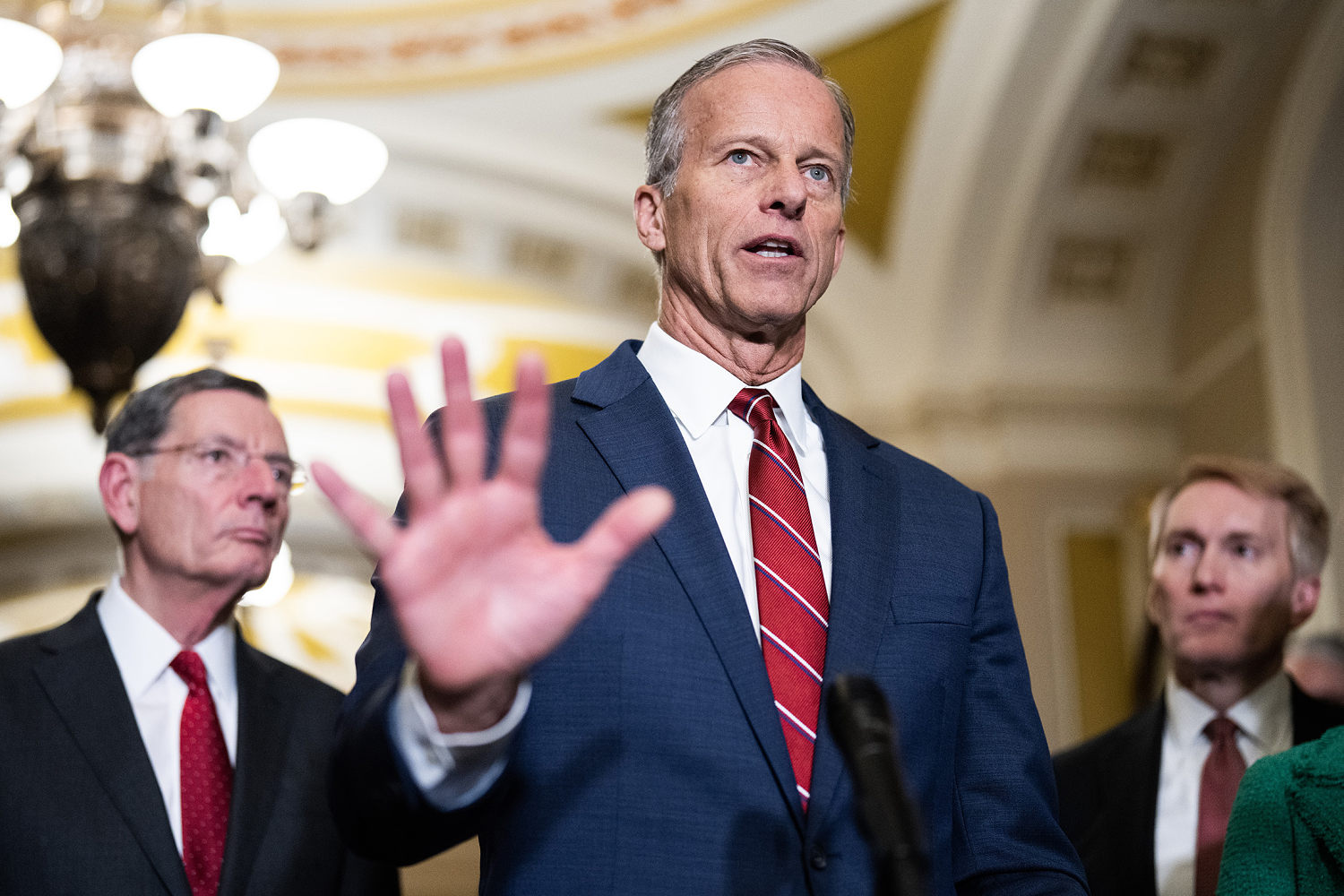Senate Republicans voted early Saturday morning to pass a budget resolution that will be critical to advancing President Trump’s legislative agenda, but the measure breaks with House Republicans on several big issues, setting the stage for a showdown between the two chambers later this year.
The Senate voted 51-48 to pass the measure after a holding a long series of votes on amendments, which kept senators pacing around the chamber for hours.
Sens. Rand Paul (Ky.) and Susan Collins (Maine) were the only Republican to vote against it.
The resolution, which serves as a blueprint to a final measure, still needs to be adopted by the House before both chambers can begin a difficult negotiation on the bill to beef up border security, expand oil and gas drilling, increase defense spending and extend Trump’s 2017 tax cuts.
Once both chambers agree to a joint budget resolution, it will unlock the reconciliation process that allows Senate Republicans to pass Trump’s agenda with a simple-majority vote and avoid a Democratic filibuster.
Senate Majority Leader John Thune (R-S.D.) rallied his Republican colleagues behind the budget by warning that failure to advance it would risk the expiration of Trump’s tax cuts at the end of the year.
“Let me tell you what, if you vote against this budget resolution, you will be voting for. You will be voting for a $4 trillion tax increase on our economy and on the American people,” he said on the floor before a series of votes on the measure.
During a marathon series of amendment votes that stretched past six hours, Senate Republicans, led by Thune and Senate Majority Whip John Barrasso (R-Wyo.), defeated every Democratic attempt to modify the resolution.
The budget debate revealed the biggest looming fight between Senate and House Republicans is over Medicaid.
House Republicans have slated the program for tens of billions of dollars in cuts, something that several Republican senators have warned they would oppose in any final reconciliation bill.
Senate Budget Committee Lindsey Graham (R-S.C.) sought to avoid a fight with the House by keeping its language directing the House Energy and Commerce Committee to reduce the deficit by $880 billion, a target that policy experts say would require making deep cuts to Medicaid, in the Senate budget resolution.
That drew strong protests from other Senate Republicans, who warned that they would not support any reconciliation bill later this year that would cut Medicaid benefits.
Sen. Josh Hawley (R-Mo.) co-sponsored an amendment with Sen. Ron Wyden (D-Ore.) to strip House-drafted language affecting Medicaid from the resolution.
That amendment failed by a vote of 49 to 50.
Other Senate Republicans, including Sens. Lisa Murkowski (Alaska), Jerry Moran (Kan.) and Collins voiced their own strong misgivings about the House language, which they said threatened Medicaid benefits.
“The House instruction on $880 billion troubles me greatly because I believe that it would inevitably lead to significant cuts in Medicaid, which would be very harmful to people in Maine and to our rural hospitals and other health care providers,” Collins said.
Senators voted along party lines, 51-48, to adopt an amendment sponsored by Sen. Dan Sullivan (R-Alaska) that they argued would strengthen and improve Medicaid “for the most vulnerable populations” and extend the life of the Federal Hospital Insurance Trust Fund.
“My amendment says we’ll strengthen Medicaid and Medicare so they’re available for years to come,” Sullivan told colleagues on the floor.
Democrats claimed, however, the amendment opens the door to Medicaid cuts by failing to define who qualifies as members of the most ...












